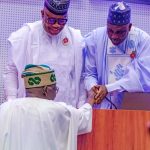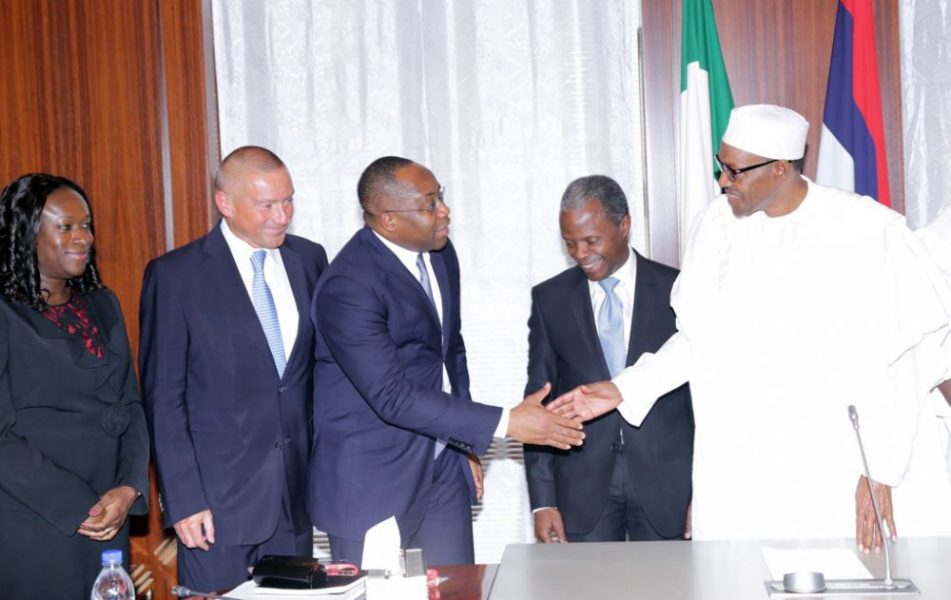Ifeanyi Onuba
From every indication, the global economy is currently struggling with the recessionary forces and weak economic outlook.
The Managing Director of the International Monetary Fund, Kristalina Georgieva gave credence to this when she said the global economy faces its “biggest test since the Second World War.”
The invasion of Ukraine by Russia has compounded the residual economic effects of Covid-19 crisis, dragging down growth and driving inflation to multi-decade highs.
While spiraling food and energy prices are squeezing households around the world, central banks are tightening monetary policy to rein in inflation, exerting further pressure on indebted nations, companies and families.
But in the midst of these economic headwinds, the Nigerian Sovereign Investment Authority has continued to show resilience, a feat attested to by the Authority’s 2021 financial performance.
The NSIA is an investment institution of the federation set up in 2012 to manage funds in excess of budgeted hydrocarbon revenues.
Its mission is to play a leading role in driving sustained economic development for the benefit of all Nigerians through building a savings base for the Nigerian people, enhancing the development of Nigeria’s infrastructure, and providing stabilization support in times of economic stress.
The NSIA operates three mandate funds. They are the Stabilization Fund, the Future Generations Fund, and the Nigeria Infrastructure Fund.
Amidst the challenging operating environment which has tested the resilience of institutions and businesses globally, the NSIA has continued to weather the storm as it posted its nine consecutive year profit of N153.56bn in the 2021 financial period.
In spite of a tough and volatile market, the NSIA’s investment strategy has proved to be resilient, and this has enabled the Authority to deliver favourable outcome as shown by the 2021 financial statement.
For instance, the Authority which was set up in 2012 to manage Nigeria’s Sovereign Wealth Fund achieved core income of N100.8bn in 2021 compared to N109.6bn in 2020. This excludes foreign exchange gains of N45.8bn in 2021 and N51.2bn in 2020.
The NSIA also achieved a 19.02 per cent growth in Net Assets to N919.73bn in 2021 from the N772.75bn recorded in the preceding period of 2020. Total assets rose by 25 per cent to close at N1.228 trillion up from a position of N981.78billion in 2020.
The funds performed excellently on an individual basis with the Future Generation Fund (FGF) growing by 11.98 per cent to N976.868bn in 2021 while the Stabilization Fund (SF) and Nigeria Infrastructure Fund (NIF) grew by 1.60 per cent and 4.64 per cent to hit N278.827 billion and N962.778 billion respectively.
The NSIA surpassed major milestones across domestic infrastructure projects specifically in motorways, agriculture, healthcare, technology, gas industrialization among others.
Speaking on the financial performance, the Managing Director of NSIA, Uche Orji said despite the challenging year, the Fund was able to finish strong with a solid financial outcome for its contributors.
In terms of the details, he stated that Presidential Fertiliser Initiative ran successfully in 2021 and further eliminated the need for government subsidy. He noted further that as backward integration strategy, the Authority made significant progress on the joint development of the US$1.4 billion Ammonia and Di-Ammonium Phosphate production plants set for construction in Ikot-Abasi in partnership with OCP under the Authority’s gas industrialization programme. At completion this will strengthen food security and enable full domestic production of fertilizer which is a major input in Nigeria’s food production value chain.
Orji spoke on the 2022 investment year, saying the rising global inflation will require delicate management Central Banks and alluded to the ongoing Ukraine-Russia conflict as further catalyst to sustained surge in global commodity prices.
According to Orji, “2021 marked the end of another solid fiscal year at NSIA. In the period, the Authority delivered a strong performance. While the results are in line with the Authority’s expectations, strong performance of our developed market investments were offset by challenges in our emerging market asset allocation, particularly in China equities, which saw significant underperformance by technology company stocks.
“Looking ahead to 2022 and beyond, we believe inflationary pressures will persist for much of this year, affecting the performance of all asset classes. We remain committed to strengthening the Authority’s performance by strengthening our risk management teams.
“In addition to expanding our direct investment footprint in innovation and technology in Nigeria, we have also designated ESG as an investment focus area. We will remain unrelenting in our quest to deliver the Authority’s clear 3-fold mandate. I am confident that the actions we are taking will create value for all our stakeholders in the medium to long term.”
Orji said the NSIA is transforming itself from being a Fund Manager to an Asset Manager. To achieve this, he said the Authority is being positioned to take over, manage and create value in critical assets for the both the federal and state government.
For instance, he said that the NSIA has opened discussions with the federal government to manage some of its assets in the power sector, real estate, and industrial sector among others. Some of these assets, according to him, have been under-utilized for many years without adding any economic value to Nigeria.
According to him, asset transfers will be an important component of the NSIA growth strategy in the medium to long term as the Authority sees significant opportunities in the federal government’s portfolio of power and real estate assets.
He said, “The NSIA is transitioning itself now from a fund management company to an asset management company. We are hoping to engage with the government to look at certain assets that we can manage on their behalf, and we believe that we have shown a lot of competence in asset management because that is some of the things we have done with some of the presidential programmes that we have run.”
The NSIA Boss also stated that abandoned power plants would be looked into so that more profit can be maximized for the government.
He said the NSIA is being positioned as an Asset Management Company in line with one of Singaporean Sovereign Wealth Fund Temasek Holdings, which manages about $405bn worth of assets.
Nigeria has unproductive assets scattered across various parts of the country, which the government can leverage to grow its revenue stream and fulfil its financial obligations.
He added, “So, there are quite a number of things that looks like opportunity for the NSIA to do to expand its footprints and grow its assets as opposed to its cash. Power for example, watch the space and there is one or two power plants that is almost near completion but abandoned. So, we hope to take over those power plants, finish it, run it, create value and that value comes back to the NSIA.
“Real estate is another area where we are going to be very active. The federal government owns a lot of real estates in many parts of the world and many of them under-utilized, under managed and even locally not well managed. So, we are approaching them to run it. These are assets that should be managed. And then industrial assets that are just allowed to rot away, many of them are still in decent position.
“So, there are things that can be done with regards to asset management and I think this for us remain something to pursue.
“Singapore has two Sovereign Wealth Fund. One is GIC and the other one is Temasec which manages their assets and that is the model many of us want to copy. So, instead of asking for cash, we ask you to give us your assets, attract capital and fix those assets.”
He also said that the NSIA as an Asset Manager will be open to managing the assets of state governments since they have almost the same ownership of the Authority as the federal government.
Orji added, “We are open to providing the same type of access to state governments because they are equal owners of the Fund. So, any state that has an asset, we are open to it. We have already been engaging some of the states in this area actively. We know we don’t have a huge amount of money ourselves and we will work with the states, attract capital and make them viable.”
























Leave a comment